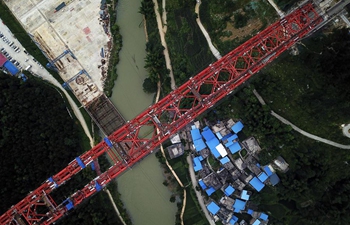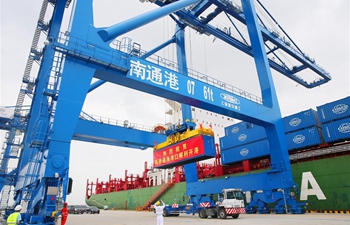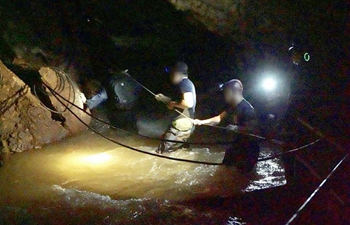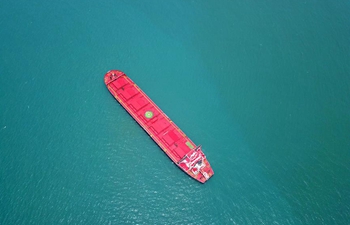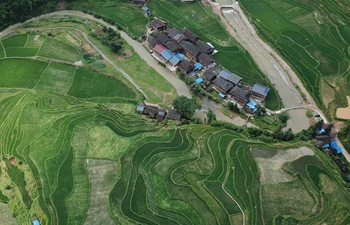SUVA, July 1 (Xinhua) -- The Fijian government is seriously dealing with the implication of climate change by installing solar power systems in rural communities.
This has been completed through the rural electrification project initiative to extend the Energy Fiji Limited (EFL) grid to rural communities and to install new solar power systems.
EFL's Chief Executive Hasmukh Patel said recently that they're trying to establish more renewable energy schemes in the next four to five years.
According to Patel, millions of dollars are being spent by Fijian government via EFL to construct these projects and electrify Fiji.
The Fijian government wants to make sure that all Fijians have access to electricity by 2021. And the government has allocated 42.6 million Fijian dollars (about 20.2 million U.S dollars) for the rural electrification project this year.
As a nation with more than 300 islands and a population of more than 880,000, Fiji plans to slash its greenhouse gas emissions by 30 percent by 2030.
Prime Minister Voreqe Bainimarama, who is also president of the 23rd Conference of Parties (COP 23) to the UN Framework Convention on Climate Change, said recently that it would happen by lifting Fiji's reliance on renewable energy from 65 percent to 95 percent over the next 13 years.
Fiji has offered to give permanent refuge to people displaced by climate, including those from Kiribati and Tuvalu islands in case the island nations are submerged in the sea altogether.
Kiribati is a state in the central Pacific Ocean. Its permanent population is over 110,000, more than half of whom live on Tarawa Atoll alone.
The nation comprises 32 atolls and reef islands and one raised coral island, Banaba. They have a total land area of 800 square km.
Tuvalu is located in the Pacific Ocean, about midway between Hawaii and Australia, and has a population of 10,640 people.
Severe tropical cyclone Winston was the most intense tropical cyclone and the strongest to make landfall in the southern hemisphere. It was the costliest tropical cyclone on record in 2016 and wiped out one third of Fiji's gross domestic product and decades of development.
Fiji learned a lesson from this cyclone as it exposed just how vulnerable island nations were when facing extreme weather conditions caused by climate change.
Bainimarama said Fiji needs to dedicate more finance to adapt to climate change, such as building more seawalls and developing more climate resilience for communities.
Fiji needs to secure new investment in renewable energy and access to clean water.
There was also a need for insurance coverage for climate-related events. The rebuilding costs after disasters like cyclone Winston are a greater burden on governments and ordinary people than they should be.
Fiji believes that carbon markets and carbon pricing are among a number of ways that jurisdictions with large carbon footprints can mitigate emissions.
For the 2017-2018 budget, 1.4 million Fijian dollars (about 663,740 U.S. dollars) has been allocated for crop and home insurance in the aftermath of natural disasters and 650 million Fijian dollars (about 308.1 million U.S. dollars) has been allocated for climate adaptation mitigation programs.
The Fijian government said the Environment and Climate Adaptation Levy has generated a total of 110.6 million Fijian dollars (about 52.4 million U.S. dollars) as of April 30, exceeding the estimated amount of 94 million Fijian dollars (about 44.56 million U.S. dollars).




